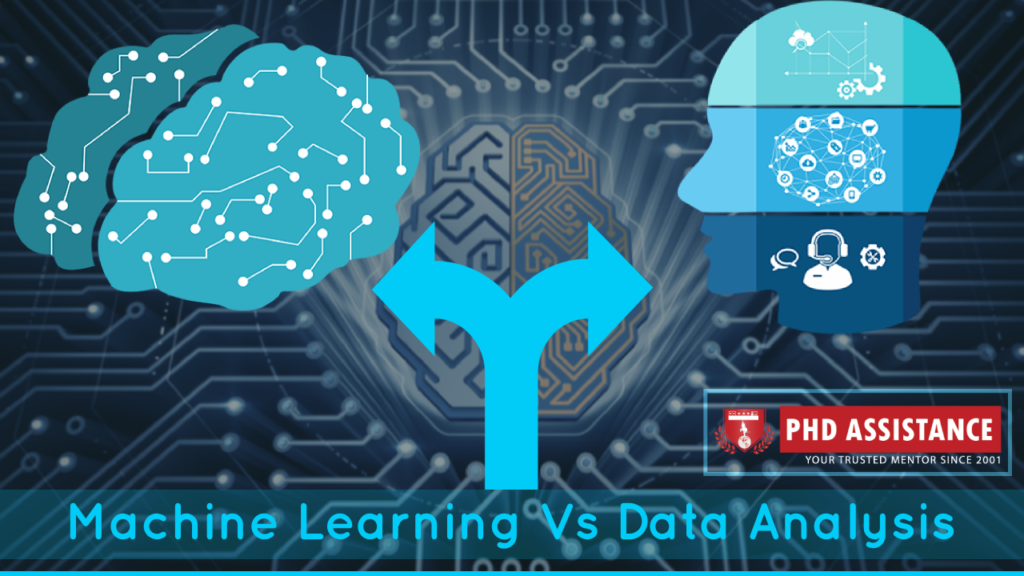PhD Economic Data Analysis Service
Get Economic Data Analysis for Your PhD Research
Ph.D. Econometric Modeling Expert Support Across Disciplines
About Econometrics
Econometrics is a discipline based on the development of probabilistic models and statistical inference methods for the study of economic relations. The relationship depicts the random behaviour of economic relationship which are not considered in the mathematical and economical formulation.
Q = f (P, Ps, Yd) (1.1)
Basically, it deals with evaluating economic theories and models and investigating their validity. It consists of elements from a wide range of disciplines including mathematics, economics, and statistics. While main aim of econometrics is to develop models to analyse relationship between variables with due regard to (a) the multi-causal nature of most economic variables – non-experimental and b) measurement errors.
Statistics at Ph.D. Assistance
At Ph.D. Assistance, we help you to formulate and specify economic models (e.g. functional form, the specification of stochastic structure), followed by estimation and testing of models, and finally use models for forecasting and policy formulation. Further our team of expertise has the knowledge to handle both theoretical and applied econometrics (e.g. demand, supply, production, investment, corruption).
Econometric Modeling Features at Ph.D. Assistance
At Ph.D. Assistance, the following are performed while you order for econometric models
• Theoretical foundation that we apply
• Micro-econometric and macro-econometric
• Behavioural modeling
• Statistical foundation- econometric methods
• Mathematical elements – the usual model building
We follow the following traditional econometric methodology
• Statement of theory or hypothesis.
• Specification of the mathematical model based on the theory
• Specification of the statistical, or econometric, model
• Collecting the data
• Estimation of the parameters
• Diagnostic and specification test
• Model selection
• Hypothesis testing
• Forecasting or prediction
• Model application for control or policy purposes.
Data compiling and recoding:
Creating data entry format in excel, followed by exporting data into SPSS or any software, labeling, checking for normality, missing data, data entry errors, outliers checking using appropriate analysis.
Statistical Data analysis
Although there are several ways of analysing data, usual format starts with descriptive statistics (mean, standard deviation, minimum, maximum, range, standard error of mean, confidence interval) of the socio-demographic variables (age, sex, occupation, income, marital status etc.) and followed by reliability of the composite scores. Further, the data analysis is focused on hypothesis testing using appropriate statistical tools.
Interpretation of statistical output
Output-provided in any software will be exhaustive, and it is not necessary to interpret all the numbers. At Ph.D. Assistance, we interpret the data that are relevant to the thesis and make sure you completely understand the output. If not, we are here to provide the statistical help that you are looking for.
At Ph.D. Assistance, the presentation of statistical output for the Ph.D. thesis data analysis follows the journal format and it applies appropriate interpretation not only based on numbers (quantitative expression) but also qualitatively including commenting your research methodology strength and Limitations. In that way, Ph.D. Assistance provides a complete support in statistics part of your research work.
[For example, sample size, study design, response rate, questionnaire reliability, and validity, etc.]. We not only help you in the statistical data analysis but also get involved in tutoring of statistical analysis part, which brings you more confidence to defend your thesis / dissertation.
We ensure to check the following before dispatching the project
• Data analysis procedures are sufficiently described and are sufficiently detailed to permit the study to be replicated.
• Data analysis procedures conform to the research design; hypotheses, models, or theory drives the data analyses.
• The assumptions underlying the use of statistics are fulfilled by the data, such as measurement properties of the data and normality of distributions.
• Statistical tests are appropriate (optimal).
• If statistical analysis involves multiple tests or comparisons proper adjustment of significance level for chance outcomes was applied.
• Power issues are considered in statistical studies with small sample sizes.
• In qualitative research that relies on words instead of numbers, basic requirements of data reliability, validity, trustworthiness, and absence of bias were fulfilled.
Reporting of Statistical Analyses
• The assumptions underlying the use of statistics are considered, given the data collected.
• The statistics are reported correctly and appropriately.
• The number of analyses is appropriate.
• Measures of functional significance, such as effect size or proportion of variance accounted for, accompany hypothesis-testing analyses.
Presentation of Results
• Results are organized in a way that is easy to understand.
• Results are presented effectively; the results are contextualized.
• The results are complete.
• The amount of data presented is sufficient and appropriate.
• Tables, graphs, or figures are used judiciously and agree with the text.
Our Guarantees – Best Econometrics Support
PhD Support Research Laboratory provides best educational support to PhD candidates and scholars around the world, specializing in econometric modeling and quantitative studies. Our workflow is directed by field expert econometricians, statisticians, and scholarly editors providing publication-ready, institution-approved research materials.
All our econometric theses, manuscripts, and publications are original research-based work by in-house subject-matter specialists. We utilize Turnitin, WriteCheck, and AI-detection software to make sure your work is free of plagiarism and institutionally compliant with integrity standards.
Our econometrics service covers several domains with each project realized by specialists in fields like:
- Economics & Finance
- Engineering & Technology
- Life & Medical Sciences
- Environmental & Agricultural Sciences
- Social Sciences & Public Policy
Our subject-matter econometricians provide statistical depth, model relevance, and discipline applicability in applied as well as theoretical studies
Our Guarantees – Top Econometrics Assistance
PhD Assistance Research Lab offers top academic assistance to PhD students and researchers globally, with a focus on econometric modeling and quantitative research. Our process is guided by field-specialized econometricians, statisticians, and academic editors who offer publication-ready, institution-approved research products.
Our econometrics service encompasses multiple domains with every project accomplished by experts in areas such as:
- Economics & Finance
- Engineering & Technology
- Life & Medical Sciences
- Environmental & Agricultural Sciences
- Social Sciences & Public Policy
Our subject-matter econometricians deliver statistical depth, model relevance, and discipline applicability in applied as well as theoretical research
We customize your econometric research to precisely match the specifications of top international universities like IITs, IIMs, LSE, Oxford, Harvard, Cambridge, NUS, and UGC-approved universities. This includes formatting, structural correlation, model reporting requirements, and journal submission guidelines
We use only literature and data from peer-reviewed and top-quality academic journals like:
- JSTOR
- Scopus
- Springer
- ProQuest
- Elsevier
- Web of Science
OECD, IMF, World Bank (for macro/micro datasets)
This ensures your econometric models are based on solid empirical and theoretical foundations
- Quantitative researchers and econometricians at PhD level
- Scholarly writing and economics/statistics-trained academic editors
- Statistical analysts skilled in regression models, panel data, time series, GMM, ARIMA, SEM, and others
Our statisticians are extremely skilled with all analysis tools such as:
- SPSS
- R
- STATA
- SAS
- MATLAB
- AMOS
- NVivo
We cover all of your data from data cleaning, sample size, hypothesis testing, survival analysis, Bayesian modelling, spatial analyses, and multi-level regression reports
We offer unlimited supervisor or journal feedback revisions. From adding more precision to your model specification, re-doing variable selection, or rewriting descriptions—we work with you until it’s flawless
We use the current editions of referencing guides such as APA, Harvard, Chicago, MLA, Oxford, and Vancouver. Tools such as Mendeley, Zotero, and EndNote ensure accuracy and clarity in citations
We deliver all econometric homework within the time frame guaranteed:
- Minor revisions within 24 hours
- Major revisions within 48 hours
- Fast turnaround within 30 minutes within office hours
We strictly follow your word count requirement—usually between 8,000 and 80,000+ words. You get only academically sound, without padding or filler generated by AI
To facilitate complete transparency and subsequent use, we provide:
- Unprocessed datasets (cross-section, time-series, or panel)
- Codebooks and analysis scripts (e.g., STATA, R, MATLAB)
- Supporting files of journal articles, PDFs, reports, and PPTs
- Links to academic video, translated content, and official databases
Most appropriately used for viva-voce preparation, journal submission, or prolonged extension of your research.
We strictly follow your word count requirement—usually between 8,000 and 80,000+ words. You get only academically sound, without padding or filler generated by AI
Our Econometrics Service by Subject Area
The PhD Assistance Research Lab offers tailored assistance for you in the areas of PhD research design and economic analysis, including statistical planning, selection of model, and interpretation according to academic and institutional requirements. Our staff has extensive experience in ensuring that you have clarity, practicality, and methodological consistency—assisting you to align your research problem, data organization, and analysis with your intended academic purposes.
Order process
Ordering your econometric service from Ph.D. Assistance Research lab is quick and easy. You need to follow the easy steps given below
Submit Your Requirements and Make Payment
Fill out the order form with your research needs and proceed with secure online payment. This allows us to begin your project promptly.
Order Confirmation & Expert
Assignment
After payment, you’ll receive an order confirmation. We then assign a qualified subject matter expert suited to your research methodology.
Regular Updates & Two-Way Communication
We keep you informed on progress and encourage you to share updates or changes from your university or supervisor.
Editing, Proofreading & Plagiarism Check
Your document is reviewed by native English editors for grammar, structure, and academic style. A plagiarism scan ensures 100% originality.
Review &
Revisions
We cross-check the document with your original requirements. Unlimited free revisions are offered for supervisor feedback or content updates.
Final Delivery & Feedback
Receive your final document via secure CRM and email, along with supporting materials. We welcome your feedback to improve our services.
Econometric Models That We Carry Out
1. Model Development & Specification
- Theory translation to model
- Specification of mathematical and econometric models
- Selection of functional form (linear, log-linear, etc.)
- Reduced form and structural model construction
4. Advanced Econometric Modeling
- Time Series Analysis (ARIMA, ARCH/GARCH, VAR, VECM)
- Panel Data Econometrics (Static & Dynamic Models)
- Structural Equation Modeling (SEM)
Limited Dependent Variable Models (Logit, Probit, Tobit) - Count Data Models (Poisson, Negative Binomial) Survival/Duration Models
- Difference-in-Differences (DiD), Regression Discontinuity
8. Interpretation & Report Writing
- Clear statistical results explanation
- Visual representation of results (graphs, tables, regression outputs)
- Economic theory-based interpretation
- Conceptual framework or literature review integration
2. Data Support Services
- Data retrieval from original databases (World Bank, IMF, OECD, etc.)
- Primary and secondary data analysis
- Handling of Panels, time-series, and cross-sectional data
- Cleaning, transformation, and normalization of the data
- Handling of missing data and outliers
Policy or Regulatory Research proposal
- Parametric & non-parametric testing (t-test, F-test, Wald test, LM test)
- Model diagnostics: multicollinearity, heteroscedasticity, autocorrelation
- Goodness-of-fit statistics (R², AIC, BIC)
- Residual and stability analysis
- Unit root and cointegration tests
9. Econometrics for Thesis & Publications
- Writing econometric chapter from scratch
- Replication of your data-based published models
- Simple proof-reading and reviewer’s comments
- Model fit and robustness tests improvement
3. Econometric Estimation Techniques
- Ordinary Least Squares (OLS)
Generalized Least Squares (GLS) - Instrumental Variables (IV) and Two-Stage Least Squares
- Maximum Likelihood Estimation (MLE)
Generalized Method of Moments (GMM) - Fixed Effects and Random Effects Models
- Dynamic Panel Data Models (Arellano-Bond, etc.)
Innovation or Technological Advancement Research proposal
- Short-term and long-term forecast
- Monte Carlo simulations
- Policy impact scenario analysis
Our Sample & Example Works
Econometric Modeling Packages PhD Assistance Research Lab
Econometric Service Packages Comparison Table
- SPSS
- Epi Info
- Descriptive statistics
- Bivariate analysis (t-test, chi-square, ANOVA)
- Simple linear/logistic regression
- Clean dataset and summary tables
- Result interpretation (in APA/Harvard format)
- SPSS output
- Interpretation report
- Visuals (charts/tables for thesis purposes)
- STATA
- EViews
- R / RStudio
- Python
- Time series models (ARIMA, VAR, VECM, ARCH/GARCH)
- Higher-level panel models (DiD, System GMM, dynamic models)
- Hypothesis testing & forecasting
- Cointegration & structural breaks
- Diagnostic + robustness tests
- Codebook + annotated script
- Output reports (PDF/Word)
- Figures, tables, and model diagnostics
- Journal-format write-up for methodology & results section
- R / RStudio
- Python
- STATA
- AMOS / LISREL (for SEM)
- Highly tailored econometric modeling
- Structural Equation Models (SEM), multilevel models
- Prediction econometrics integrations (Python/R) for machine learning
- Managing reviewer comments for resubmission to journals
- Guidance on replication studies & code transparency
- EndNote/Mendeley reference management
- Full reproducible code
- Journal-ready statistical tables (APA or journal format)
- Interpretation + viva-voce defense support
- Raw data archive + citation file
Add-On Services (All Packages Include):
- Data sourcing (World Bank, IMF, OECD, etc.)
- Data cleaning & preprocessing
- Figure and table visualization design
- Revision handling (minor/major)
- Journal formatting (UGC, Scopus, Elsevier, Springer)
Delivery Options
- Rush delivery (2–3 business days): +25% of delivery cost
- Weekend/holiday support (if any): On request
Add-On Services
| Service | Timeline | Starting From (USD) |
|---|---|---|
| Data Cleaning & Preprocessing | 2–3 days | $100 |
| Model Diagnostics | 3–4 days | $150 |
| Journal Formatting | 2 days | $80 |
| Literature-Driven Model Justification | 3–5 days | $120 |
| Revision Handling | 24–48 hrs | $50 |
Whom We Serve – Econometric Support for Research
We offer specific econometric analysis services to a varying range of researchers across research, academia, and industry. Our solutions are designed specifically to achieve the specific methodological and academic requirement of all group, ensuring originality, accuracy, and research outcome.
We assist PhD and postdoc researchers undertaking quantitative or applied econometric research. Sample size calculation and model choice through to advanced methods such as time series forecasting, panel data estimation, structural models, and simultaneous equations, we provide comprehensive end-to-end econometric solutions.
We assist with coordination with research committees, academic departments, and faculty members in order to improve the quality of student as well as faculty research methodologies. Our assistance adheres to university research ethics, publication thesis guidelines of journals, econometric-based dissertation guidelines, as well as academic honesty standards.
For postdoctoral researchers, independent researchers, and academic writers, we offer expert econometric model services in economics, finance, education, public policy, and other areas. We support in choosing valid models such as VAR/VECM, Logit/Probit, GARCH, and other advanced econometric methods.
We provide support to healthcare and policy researchers in using econometric methods to examine the effect of interventions in health, forecast demand, and evaluate resource allocation. Services:
- Cost-effectiveness models
- Panel/cross-sectional analysis
- Quasi-experimental designs (e.g., Difference-in-Differences, Regression Discontinuity)
We assist business and industry analysts in applying econometrics to predict markets, risk model, price strategy model, and customer segment. Major services include:
- Time series and panel data forecasting
- Volatility modelling (e.g., GARCH)
- Discrete choice models and clustering methods
We provide econometric services to UK, US, European, Australian, UAE, and Indian students and academics on:
- Submission and format requirements of each institution
- Statistical software unique to each region (e.g., R, STATA, EViews)
- Needs of international publications and university standards
Features We Offer while ordering Econometrics Service
- Research Title or Topic Area
- Approved Proposal
- Your Research Aims or Questions
- Research Hypotheses
- Additional Data
- Raw Dataset (Excel, SPSS, STATA, etc.)
- Previous Statistical Output
- Supervisor Comments
- University Guidelines (APA, Harvard, specific formatting requirements)
- One-on-One Econometrics Assistance
- Assumption Testing & Appropriate Model Selection
- Econometric Model Development
- Hypothesis Testing (t-tests, ANOVA, Chi-square, etc.)
- Advanced Econometric Techniques
- Software-specific Guidance (R, STATA, SPSS, GraphPad Prism, SAS, etc.)
- Interpretation of Econometric Results aligning with Research problems.
- Graphical Presentation
- Table Formatting
- Full Dissertation Writing from Beginning to End
- Topic Identifying from - nothing, (unless the service is identified - as a stand-alone service)
- Full Pilot Study - or Full Data Collection
- Interview Transcription or Translation Services
- Ethics Committee submissions or ethics approvals.
- Publication & submitting to journals
Check at what stage you’re into & Analyse how you can fit into our engagement model
Luca

Econometric Results Interpretation & Academic Reporting We help you convert challenging econometric results—whether from STATA, EViews, R, or Python—to precise, academically formatted outcomes. Our experts help you report regression coefficients, R-squared, p-values, and time series diagnostics (autocorrelation, stationarity tests) in adherence to thesis and journal standards.
Carlos

Cross-sectional, Time Series, & Panel Data Model Choice We help you decide and apply the appropriate econometric models—be it OLS, ARIMA, GARCH, or panel estimators like Arellano-Bond—based on the nature of your data, research objective, and relationships among the variables. Our experts ensure your analytical choices are solid, trustworthy, and publication-worthy.
Aisha

Econometric Diagnostics & Robustness Testing We assist you in making your econometric results robust through required diagnostic tests—stationarity (ADF, KPSS), autocorrelation (Durbin-Watson), multicollinearity (VIF), heteroskedasticity (Breusch-Pagan), and model specification tests. We help make your results credible, replicable, and academically defensible.
Isabella

Econometric Diagnostics & Robustness Testing We guide you through making your econometric findings solid via mandatory diagnostic tests—stationarity (ADF, KPSS), autocorrelation (Durbin-Watson), multicollinearity (VIF), heteroskedasticity (Breusch-Pagan), and model specification tests. We assist in making your findings credible, replicable, and academically sound.
Software Expertise at PhD Assistance Research Lab

SPSS
Key Features:
Usability-based interface with support for descriptive stats, regression, ANOVA, and advanced hypothesis testing.
Best For:
Applied econometric analysis in social science, healthcare, and psychology; especially well-suited to explaining results in formatted datasets.

SAS
Key Features:
Advanced statistical modeling, macro
programming, survival analysis
support, and regulation-ready for regulated industries.
Best For:
Large econometric
research in public
health, clinical trials, and
pharma economics.

R / RStudio
Key Features:
Open-source, highly package-extensible with packages such as plm, forecast, lme4, ggplot2, and AER for econometric modeling.
Best For:
Advanced econometric modeling,
multivariate regression, time series analysis, simulation, and hypothesis testing for academic journals.
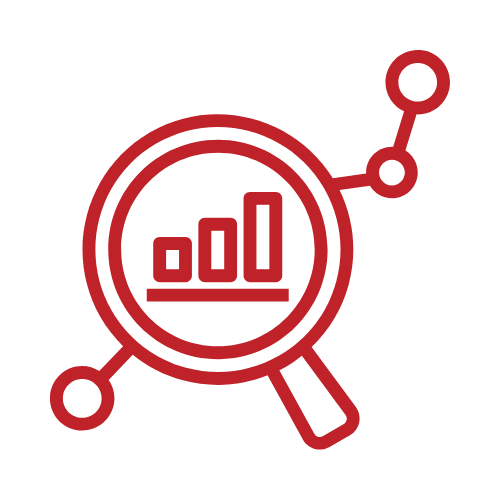
Python
Key Features:
High-level scripting with econometric and machine learning libraries such as statsmodels, pandas, scikit-learn, and linear models.
Best For:
Predictive econometrics, real-time analysis of data, panel and time series econometrics, and algorithmic-based modeling.

Minitab
Key Features: Statistical quality control features, regression, ANOVA, DOE, run control charts, also Six Sigma analysis capability. Best For: Ideal to utilize when determining assessment and impact of public health interventions, utilization for data related to manufacturing processes, or healthcare improvement studies.

STATA
Key Features: Superb data management, superb time-series and panel data facilities, user-written commands, reproducible reports. Best For: Econometric modeling in social sciences, health economics, and economics; best used for panel and longitudinal data analysis.

EViews
Key Features:
Time series econometrics, VAR, cointegration testing, forecasting, and simulation interface user-friendly to economists.
Best For:
Macroeconomic modeling, forecasting, and
empirical testing of economic
theory.

Epi Info
Key Features: Field-friendly templates for field data entry, simple statistics, and GIS mapping to facilitate epidemiological research. Best For: Econometric application in public health, surveillance modeling, and rapid assessment studies in low-resource settings.

JMP
Key Features:
Interactive modeling and visualization, drag-and-drop experiment design (DOE), exploratory analysis, and regression features.
Best For:
Applied modeling and econometric studies in management studies, clinical trials, and quality improvement studies.

AMOS / LISREL
Key Features:
Graphical structural equation modeling (SEM), confirmatory factor analysis, and path analysis platform.
Best For:
Latent variable econometric models, theory-based hypothesis testing, and causal modeling in economics and behavioral studies.
Our Guarantee

Plagiarism Free

Unlimited Support

On-time delivery

Subject Matter Expertise

Communicate with your writer

Updated academic resources

Free research articles supply*
Client success stories
Econometric Service
Expert Advice on Econometric Model Selection

"I was faced with choosing between panel regression models like fixed effects, random effects, or even a dynamic model like Arellano-Bond. The Econometrics Team at PhD Assistance Research Lab took me through Hausman tests, model assumptions, and decision-making step by step. Their strategic advice made my methodology chapter scholarship-based and indefensible."
— Ricardo Fernández, PhD Scholar in Economics, Spain
Deadline-Based Delivery of Time Series Results

"Due to the stringent deadline for submission, I needed to carry out ARIMA modeling and predict three macroeconomic indicators. PhD Assistance's team delivered my EViews outputs—stationarity tests, lag order selection, and measures of forecast accuracy—within the given timeline. Their well-structured tables and plots saved me countless hours of work on formatting."
— Emily Carter, Doctoral Researcher, United Kingdom
High-Quality Econometric Estimation with Clear Explanation

"I borrowed their complete econometrics suite, and I must say the regression diagnostics, cointegration tests, and interpretation of elasticities were all top-notch. They even checked my findings against regional economic trends in published literature. Their handling of heteroskedasticity and endogeneity problems helped make my policy conclusions robust."
— Ahmed El-Sayed, Egypt, Development Economist
Ready-to-Publish Output and Reporting

"I was writing my manuscript to be submitted to a peer-reviewed economics journal, and having the formatting at the forefront of my mind was one of the main worries. PhD Assistance Research Lab delivered to me fully cleaned STATA output, summary tables with all of the standard errors, and even robust standard error correction remarks. Everything was laid out in line with the journal's empirical methods section. Excellent turnaround!"
— Nina Müller, Applied Econometrics Researcher, Germany
Extreme Validation of Model Stability & Diagnostic Checks

"I wanted to make sure my VAR model was stable and impulse response functions were helpful for policy analysis. The team triple-checked all that—Granger causality, VIF, checks on residuals, and even performed a stability test on the system. They assisted me in backing every number in my thesis with solid econometric evidence."
— Jay Mehtra, India, PhD Scholar in Financial Economics
Affordable Pricing"

“I fully admire PhD assistance's reputation and quality. I especially chose PhD assistance's packages as no other company offers such a service. Their service quality and timely delivery is very helpful in meeting journal deadlines. I am glad that PhD assistance offers packages at affordable price.”
-Kate Merkel-Hess
Supportive brainstorming and topic discovery

"Picking a topic for my PhD felt like looking for a needle in a haystack. I was lost until I found the topic selection guidance service at PhD Assistance. They were like personal academic cheerleaders—helping me discover what I truly cared about and could research meaningfully. It was like a brainstorming session with friends who knew their stuff. Now I’m excited to dive into my research and make a difference!"
PhD topic clarity and direction

"Choosing a PhD topic was a total headache until I stumbled upon the PhD Thesis Dissertation Topics Help UK at PhD Assistance. Let me tell you—these guys are wizards when it comes to turning confusion into clarity. They didn’t just throw random ideas at me; they took the time to understand what I was passionate about and what I wanted to achieve. It felt like having a coffee chat with a smart friend who knows all about PhDs. Thanks to their help, I finally feel like I’m on the right track and ready to tackle anything that comes my way!"
Stress-free topic selection in Computer Science

"I was very confused about selecting a research topic for my PhD in computer science. It was stressful and overwhelming. A friend recommended PhD Assistance—and it was the best decision. The expert helped me choose a topic that my guide accepted without any changes. Thank you, PhD Assistance!"
Confidence-building experience

"I recommend PhD Assistance to anyone needing help with research topic selection. I was hesitant at first, but after meeting the team, I gained confidence in articulating my ideas clearly. The title they provided matched exactly what I had in mind—it felt like they had read my thoughts. Thank you!"
Structured support for academic success

"I was feeling overwhelmed and lost when it came to choosing a PhD topic that would truly excite me and contribute to the field. Thankfully, the topic selection service at PhD Assistance gave me invaluable support. They took the time to understand my interests, strengths, and goals and curated a list of focused research areas. I found a topic that reignited my passion. Thank you, team!"
John, France
Flexible and student-friendly service

"PhD Assistance offered me great flexibility in choosing courses and research areas. The specialists helped me identify a unique and meaningful topic. It gave me a strong foundation to move confidently into the next stage of my research."
Liam
Supportive brainstorming and topic discovery

"Picking a topic for my PhD felt like looking for a needle in a haystack. I was lost until I found the topic selection guidance service at PhD Assistance. They were like personal academic cheerleaders—helping me discover what I truly cared about and could research meaningfully. It was like a brainstorming session with friends who knew their stuff. Now I’m excited to dive into my research and make a difference!"
Supportive brainstorming and topic discovery

"Picking a topic for my PhD felt like looking for a needle in a haystack. I was lost until I found the topic selection guidance service at PhD Assistance. They were like personal academic cheerleaders—helping me discover what I truly cared about and could research meaningfully. It was like a brainstorming session with friends who knew their stuff. Now I’m excited to dive into my research and make a difference!"
Quality & Compliances
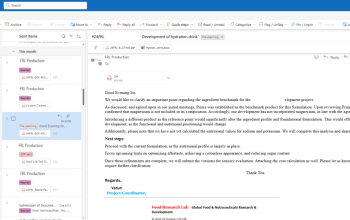
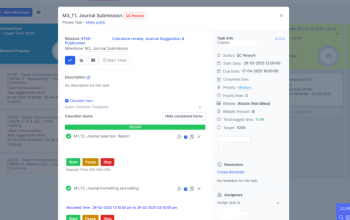
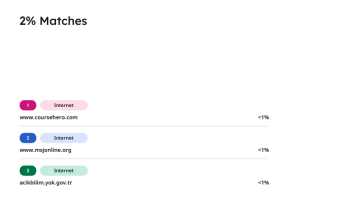
Frequently Asked Questions.
We work with a diverse range of econometric data across sectors:
• Time Series Data – e.g., macroeconomic variables, stock prices, COVID-19 transmission
• Cross-sectional Data – e.g., firm/individual level surveys, household level data
• Panel Data – e.g., multi-time period data at individual, regional, or institutional level
• Binary/Dummy Variable Data – for logistic/probit models and policy treatment assignment identification
PhD Assistance Research Lab has an expert team of econometricians and statisticians that conducts a broad array of advanced econometric and statistical tests specific to publication in journals and PhD-level work. Some of the usual ones are:
Basic & Inferential Statistics
• T-tests (independent, paired)
• Chi-square tests
• ANOVA, ANCOVA, MANOVA, MANCOVA
• Non-parametric tests: Mann-Whitney, Kruskal-Wallis, Wilcoxon Signed-Rank, Friedman’s Test, McNemar’s Test
• Regression Models: Multiple regression, logistic regression, probit/logit models, GLM (Generalized Linear Models)
• Mixed models
• HLM (Hierarchical Linear Models)
Repeated Measures & Multivariate Techniques
• Repeated Measures ANOVA
• MANOVA/MANCOVA
• Factor analysis
• Cluster analysis
• Discriminant analysis
• Log-linear models
Correlation Analysis
• Pearson, Spearman
• Point-biserial, Biserial
• Canonical correlation
• Bland-Altman
• Cronbach’s Alpha
• Lin’s concordance
• Circular data correlation
• Box-Cox transformation
• Panel & Time Series Models: Fixed effects and random effects, GMM, DiD, ARIMA, VAR, VECM, ARCH/GARCH, cointegration tests
• Causal Inference Models: Difference-in-Differences (DiD), Instrumental Variables (IV), Regression Discontinuity (RD)
• Multivariate Analysis: MANOVA, factor analysis, principal component analysis (PCA), cluster analysis
• Structural Modeling: Structural Equation Modeling (SEM), path analysis
• Forecasting & Diagnostics: Box-Jenkins, exponential smoothing, residual diagnostics, AIC/BIC-based model selection
• Survival & Hazard Models: Cox regression, Kaplan-Meier, hazard ratios for health economics analysis
• Meta-analysis: Means, proportions, hazard ratios for economic and policy analysis
• Johansen cointegration test
• Engle-Granger test
• Unit root tests (ADF, PP, KPSS)
Granger Causality & Lead-Lag Analysis
• Linear Granger causality
• Nonlinear Granger causality
Machine Learning (ML) Integration for Econometrics
• Random Forest
• Gradient Boosting Machines
• Feature importance in predictive econometrics
Our econometric assistance deals with core research problems including:
• Policy estimation of impact from observational or quasi-experimental data
• Time-series forecasting and trend analysis for financial and public health indicators
• Endogeneity and omitted variable bias in empirical models
• Aggregation of cross-sectional or panel data (individuals, time periods, regions)
• Causal inference in the absence of randomized trials
• Market behavior modeling across sectors (e.g., finance, health, development economics)
Yes. We provide simultaneous contact with your personal econometric specialist via email, Skype, WhatsApp, or scheduled calls. A specific project coordinator will manage appointments and arrange timely academic assistance after starting your project.
We have open and competitive prices, which are reasonable, fair, and proportionate to academic quality and technical expertise needed for PhD-level econometric analysis. We also provide referral fees and discounts during certain seasons. Our project team provides you with a customized quote based on your approach and scope.
No, we provide you with unlimited free revisions until you are fully satisfied and your university or journal reviewer comments are all resolved. Our policy of revision is to assist you through thesis defense, submission, or publication.
Indeed. Not only will we provide your econometric writing, we will also provide facilitated learning and mentorship in getting you to understand model assumptions, interpreting results, and writing up your method and results. Your thesis chapter, policy report, or journal article gets the confidence boost from us.
Insights


